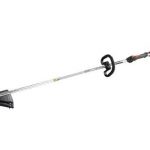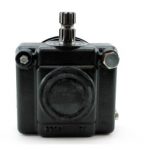If you intend to garden and maintain your lawn yourself, then you will no doubt have the need for digging tools including shovels, trowels, spades, and forks. These tools are imperative to have in your tool shed because they are used to move soil, edge the lawn, split the ground and transplant plants.
These tools come either with long handles or with short handles with D-shape grips. Tools with longer handles permit you to dig deeper holes without bending and allow you to throw soil farther. They also permit you to have better leverage when digging holes. The handles are commonly 40-inches to 48-inches in length.
Tools with shorter handles are ideal for work that requires more control and digging trenches. They can also be used in areas with limited space.
Shovel, spade and fork handles are usually made of wood, fiberglass, or tubular steel. The least expensive handle option is wood. Wood handles will last for a long time as long as they are properly stored indoors.
Tools with fiberglass handles are lighter, stronger, and last longer because they are weather-resistant.
Tools with rolled tubular steel handles will also last for a long time. They are heavier and cost more than tools with the other kinds of handles. However, they are best for performing construction-like work.
The cutting edge of shovels, spades and forks comes in different sizes and shapes that correspond to the use. Shovelheads can be pointed, rounded, or square.
Pointed shovels are primarily for digging and feature a tip that is pointed so that it can cut through roots or hard soil. Square-nosed shovels are ideal for moving loose soil or lightweight materials like mulch or compost. Rounded blade shovels that have a slight point is used as a multipurpose tool including digging and lifting.
The head of a general-purpose garden shovel is about 8-inches to 9-inches wide and include a wider blade for higher capacity. However, it requires more strength from the user. If the person using the tool is not strong enough, he or she would be better off using a 6-inch shovel.
The use of a particular shovel is based on the angle between the blade and the handle. Shovels with a minimum angle are best for digging holes, but should not be used to scoop up loose dirt because the user has to bend over to bring the blade parallel to the ground. High angle Shovels offer more leverage for digging up heavy soil. However, it should not be used for digging straight down because the handle has to be held further away from the user to set the blade perpendicular to the ground.
A garden spade has a flat, sharp edge and is perfect for cutting out sod, breaking apart crowded rootstocks and smoothing off the sides of a trench. A trenching spade is designed for digging narrow trenches that could host underground sprinklers or a drainage line. Widths of various spades are only slightly different.
Shovels and spades should be kept sharp so they can penetrate the ground. They should be cleaned with a wire brush or coarse steel wool. Wood handles should be treated with linseed oil and the blades should be treated with oil to prevent rust. Store in a dry place.
A trowel or small shovel is an ideal tool for digging small holes, for bedding plants, or for installing bulbs. It is also handy for digging up dead plants and weeds. Best results are achieved when it is used in loose soil.
A fork features wide, flat tines that are ideal for breaking up hard soil including clay or lifting and moving a group of bulbs or shrubs. Forks come with different size heads. Heavy-duty forks come with tines that have a square cross-section. All other forks come with tines that have a triangular cross section. One should select a fork based on the strength of the user.
Maintain proper posture when shoveling. Feet should be apart, you should be able to maintain your balance and your feet should be standing on solid ground. Never twist your body and don’t throw material in the air, let it slide off the shovelhead.









